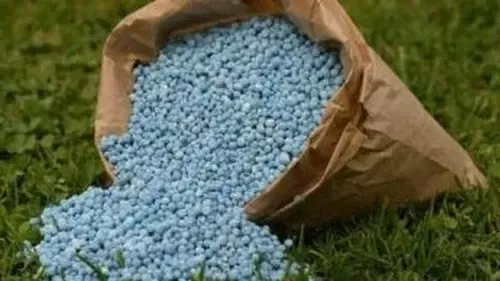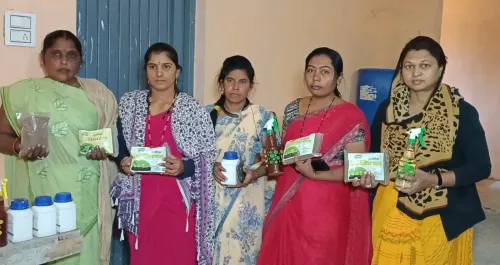Government Increases Fertiliser Subsidy for Farmers Amid Global Price Surge: Minister

Synopsis
Key Takeaways
- Enhanced Subsidy: Special package for DAP to aid farmers.
- Impact of Geopolitical Tensions: Affects fertiliser procurement viability.
- Urea Pricing: Fixed price for farmers at Rs 242 for 45 kg.
- Long-term Research: ICAR studies show balanced use of fertilisers maintains soil health.
- Efficient Irrigation: Drip irrigation improves nutrient use efficiency.
New Delhi, March 18 (NationPress) The government has introduced enhanced fertiliser packages for Di-Ammonium Phosphate (DAP), exceeding the Nutrient-Based Subsidy (NBS) rates, to ensure farmers have access to affordable supplies despite supply chain disruptions caused by geopolitical tensions, as reported in Parliament on Tuesday.
The Union Minister of State for Chemicals and Fertilisers, Anupriya Patel, stated, "In light of the geopolitical situation in 2024-25, which has negatively impacted the procurement viability of DAP by fertiliser companies, the government has sanctioned a one-time special package for DAP beyond the NBS rates at a price of Rs 3,500 per metric tonne during March 2024, now extended until March 31, 2025 to guarantee the sustainable availability of DAP at reasonable rates for farmers."
Ms. Patel noted that urea is sold to farmers at a statutorily set Maximum Retail Price (MRP) of Rs 242 for a 45 kg bag (excluding charges for neem coating and applicable taxes). The Centre provides subsidies to urea manufacturers/importers based on the difference between the farm gate delivery cost and net market revenue. Thus, all farmers receive urea at subsidized prices.
Under the NBS scheme, a fixed subsidy amount is allocated annually or bi-annually for subsidised P&K fertilizers based on their nutrient content, including DAP.
The P&K sector operates under a decontrolled regime as per the NBS scheme, allowing fertiliser companies to set MRPs at reasonable levels, which are monitored by the government. These companies manufacture or import fertilisers according to market dynamics.
Moreover, the guidelines assessing the reasonableness of MRPs established by P&K fertiliser companies ensure affordable availability of fertilizers for farmers nationwide, the minister emphasized.
She also pointed out that the Indian Council of Agricultural Research (ICAR) has evaluated the long-term impact of chemical fertilisers on various soil types across dominant cropping systems.
Research conducted over the past five decades at fixed sites reveals that judicious use of chemical fertilizers does not harm soil fertility. However, improper use along with insufficient organic matter can lead to multi-nutrient deficiencies, negatively impacting soil health. Continuous reliance on nitrogenous fertiliser alone has shown detrimental effects on soil health and crop yields, leading to nutrient deficiencies.
Furthermore, studies over the years have indicated that even within the NPK fertilised systems, nutritional imbalances, particularly deficiencies in micro and secondary nutrients, have emerged, adversely affecting soil health and productivity. The most significant decline in yields was found in plots receiving solely urea. With drip irrigation (fertigation), comparable yields can be achieved with reduced water and fertiliser usage, owing to enhanced nutrient and water efficiencies, the minister concluded.










